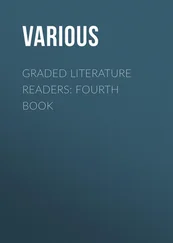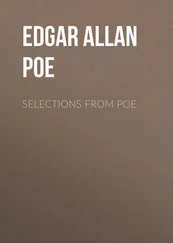Those who toil bravely are strongest;
The humble and poor become great;
And so from these brown-handed children
Shall grow mighty rulers of state.
The pen of the author and statesman—
The noble and wise of the land—
The sword, and the chisel, and palette,
Shall be held in the little brown hand.
—M. H. Krout.
Oh, I wish the Winter would go,
And I wish the Summer would come,
Then the big brown farmers will hoe,
And the little brown bee will hum.
Then the robin his fife will trill,
And the wood-piper beat his drum;
And out of their tents on the hill
The little green troops will come.
Then around and over the trees
With a flutter and flirt we’ll go,
A rollicking, frolicking breeze,
And away with a frisk ho! ho!
—Anon.
I come from haunts of coot and hern,
I make a sudden sally,
And sparkle out among the fern,
To bicker down the valley.
By thirty hills I hurry down,
Or slip between the ridges,
By twenty thorps, a little town,
And half a hundred bridges.
Till last by Philip’s farm I flow
To join the brimming river;
For men may come, and men may go,
But I go on forever.
I chatter over stony ways,
In little sharps and trebles;
I bubble into eddying bays;
I babble on the pebbles.
With many a curve my bank I fret
By many a field and fallow,
And many a fairy foreland set
With willow-weed and mallow.
I chatter, chatter as I flow
To join the brimming river,
For men may come, and men may go,
But I go on forever.
I wind about, and in and out,
With here a blossom sailing,
And here and there a lusty trout,
And here and there a grayling,
And here and there a foamy flake
Upon me as I travel,
With many a silvery waterbreak
Above the golden gravel,
And draw them all along and flow
To join the brimming river,
For men may come, and men may go,
But I go on forever.
I steal by lawns and grassy plots,
I slide by hazel covers,
I move the sweet forget-me-nots
That grow for happy lovers.
I slip, I slide, I gloom, I glance,
Among my skimming swallows;
I make the netted sunbeam dance
Against my sandy shallows.
I murmur under moon and stars
In brambly wildernesses;
I linger by my shingly bars;
I loiter round my cresses;
And out again I curve and flow
To join the brimming river,
For men may come and men may go
But I go on forever.
—Tennyson.
Great, wide, beautiful, wonderful World,
With the wonderful water around you curled,
And the wonderful grass upon your breast—
World, you are beautifully dressed.
The wonderful air is over me,
And the wonderful wind is shaking the tree,
It walks on the water, and whirls the mills,
And talks to itself on the tops of the hills.
You, friendly Earth, how far do you go,
With the wheatfields that nod and the rivers that flow,
With cities and gardens, and cliffs, and isles,
And people upon you for thousands of miles?
Ah, you are so great, and I am so small,
I tremble to think of you, World, at all;
And yet, when I said my prayers, to-day,
A whisper inside me seemed to say,
“You are more than the earth, though you are such a dot:
You can love and think, and the Earth can not!”
—W. B. Rands.
If you’ve tried and have not won,
Never stop for crying;
All that’s great and good is done
Just by patient trying.
Though young birds, in flying, fall,
Still their wings grow stronger;
And the next time they can keep
Up a little longer.
Though the sturdy oak has known
Many a blast that bowed her,
She has risen again, and grown
Loftier and prouder.
If by easy work you beat,
Who the more will prize you?
Gaining victory from defeat,
That’s the test that tries you!
—Phœbe Cary.
—A simple child,
That lightly draws its breath,
And feels its life in every limb,
What should it know of death?
I met a little cottage girl:
She was eight years old, she said;
Her hair was thick with many a curl
That clustered round her head.
She had a rustic, woodland air,
And she was wildly clad:
Her eyes were fair, and very fair—
Her beauty made me glad.
“Sisters and brothers, little Maid,
How many may you be?”
“How many? Seven in all,” she said,
And wondering looked at me.
“And where are they? I pray you tell.”
She answered, “Seven are we;
And two of us at Conway dwell,
And two are gone to sea.
“Two of us in the churchyard lie,
My sister and my brother;
And in the churchyard cottage, I
Dwell near them with my mother.”
“You say that two at Conway dwell,
And two are gone to sea,
Yet ye are seven! I pray you tell,
Sweet Maid, how this may be.”
Then did the little maid reply,
“Seven boys and girls are we;
Конец ознакомительного фрагмента.
Текст предоставлен ООО «ЛитРес».
Прочитайте эту книгу целиком, на ЛитРес.
Безопасно оплатить книгу можно банковской картой Visa, MasterCard, Maestro, со счета мобильного телефона, с платежного терминала, в салоне МТС или Связной, через PayPal, WebMoney, Яндекс.Деньги, QIWI Кошелек, бонусными картами или другим удобным Вам способом.
From “Along the Way,” copyright 1879 by Mary Mapes Dodge, and published by Chas. Scribner’s Sons.
From “Love Songs of Childhood.” Copyright, 1894, by Eugene Field. Reprinted by permission of the publishers, Chas. Scribner’s Sons.
From “The Complete Poetical Writings of J. G. Holland,” copyright 1879-1881 by Charles Scribner’s Sons.



![Various Various - Selected List of Nimmo, Hay, & Mitchell's Publications [1890]](/books/571841/various-various-selected-list-of-nimmo-hay-mit-thumb.webp)








